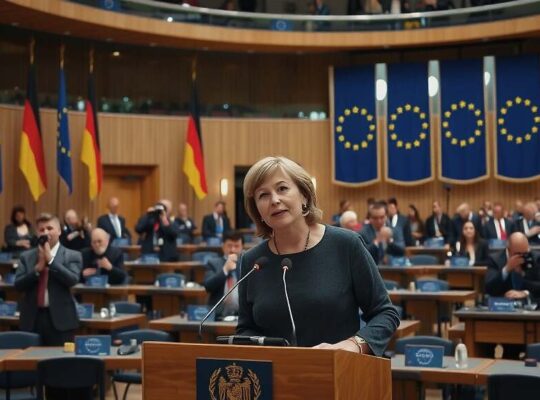A heated exchange has emerged between leading figures in German politics regarding proposed reforms to social welfare programs. Tim Klüssendorf, General Secretary of the Social Democratic Party (SPD), strongly rebuked recent suggestions by Friedrich Merz, leader of the Christian Democratic Union (CDU), concerning citizen’s income benefits, commonly referred to as “Bürgergeld.
Klüssendorf challenged the assertion that the state’s financial stability could be achieved by reducing benefits for those receiving citizen’s income. He stated that such a strategy was fundamentally flawed and emphasized the importance of maintaining a minimum standard of living within Germany. He further argued that the primary focus should be on strategies to reintegrate individuals into the workforce.
Merz, in a recent interview, had advocated for significant cuts to citizen’s income, specifically suggesting limitations on state-supported housing costs for recipients, potentially through lowered rental subsidies or restrictions on permissible apartment sizes. Klüssendorf dismissed this proposal, raising concerns about the potential to exacerbate existing problems of child poverty and homelessness, particularly given that alternative housing options might entail even higher rental expenses.
Beyond citizen’s income, Klüssendorf highlighted the considerable challenges facing the government in relation to other social insurance programs. He pointed to the looming 12 billion euro shortfall within the statutory health insurance system and called for comprehensive reforms to prevent further increases in contribution rates, a measure that would disproportionately affect lower and middle-income earners. He specifically mentioned a citizen’s insurance model, combining private and statutory insurance contributions, as a potential starting point for discussion.












